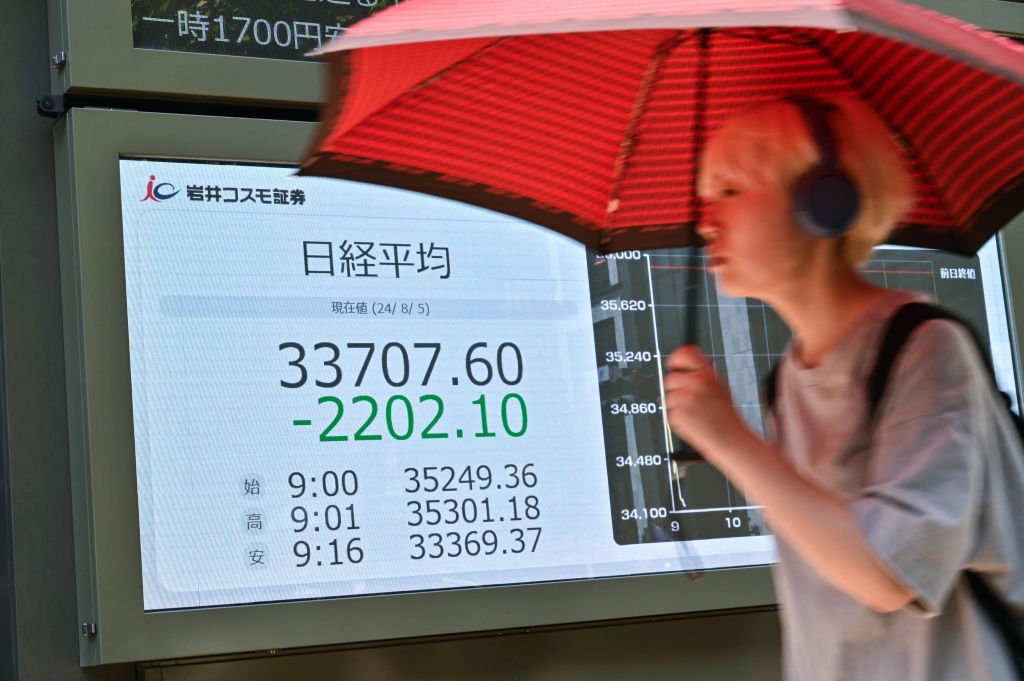
Last Monday, Japanese stock markets saw their worst day since 1987, with the Nikkei 225 index plummeting 12.4 percent. The U.S. markets, which faced heat the week before due to a weak jobs report, also declined around 3 percent that day. Several factors were at play, most notably Japan’s central bank announcing the previous Wednesday (July 31) that it would raise interest rates from near-zero to 0.25 percent. The historic move hit the stock market harder than 2020’s Covid-19 shutdowns, the 2008 financial crisis, and the 1990s’ dot-com bubble burst.
A direct trigger of last Monday’s market crash was a popular trade done by financiers and institutional investors called the “yen carry trade,” which allows investors to arbitrage the low and high-rate environments. Specifically, investors had been able to borrow Japanese yen at near-zero rates and then invest that money in U.S. Treasury Bills with a 5.5 percent yield, allowing them to make a profit at no cost and with little risk. However, this trade depends on the stability of dollar-yen exchange rates. The Bank of Japan’s rate hikes not only increased the cost of borrowing for investors but caused the yen to appreciate by 12 percent between mid-July and early August, meaning interest payments on Japanese debt suddenly rose for investors. To raise cash to cover those payments, they moved to dump shares in global markets as a result.
“Once-in-a-lifetime opportunity to exit from deflation”
The Bank of Japan’s rate hikes this year break decades of precedents. In March, the central bank raised interest rates for the first time in 17 years, ending a near decade-long experiment with negative interest rates. Unlike other countries trying to shield themselves from an inflation crisis, Japan sees an opportunity: Prime Minister Fumio Kishida called the rate hike a “once-in-a-lifetime opportunity to exit from deflation” in a recent news conference. (Updated Aug. 14: Fumio announced that he would step down in September.)
The Japanese economy has struggled since 1991 characterized by persistent deflation and low economic growth. Since 2016, Japan has kept interest rates below zero to encourage consumer spending but with little success. Thus, the nation embraced inflation in 2022 as an opportunity to increase wages.
Unlike the U.S. central bank, the Bank of Japan has raised rates not to cool its economy but to protect against the erosion of the yen. As other countries’ currencies appreciate due to high interest rates, the yen weakens and makes global imports relatively more expensive for Japanese consumers, which can reduce trade and slow economic growth. Japan’s economy has shrunk in two of the last three quarters.


